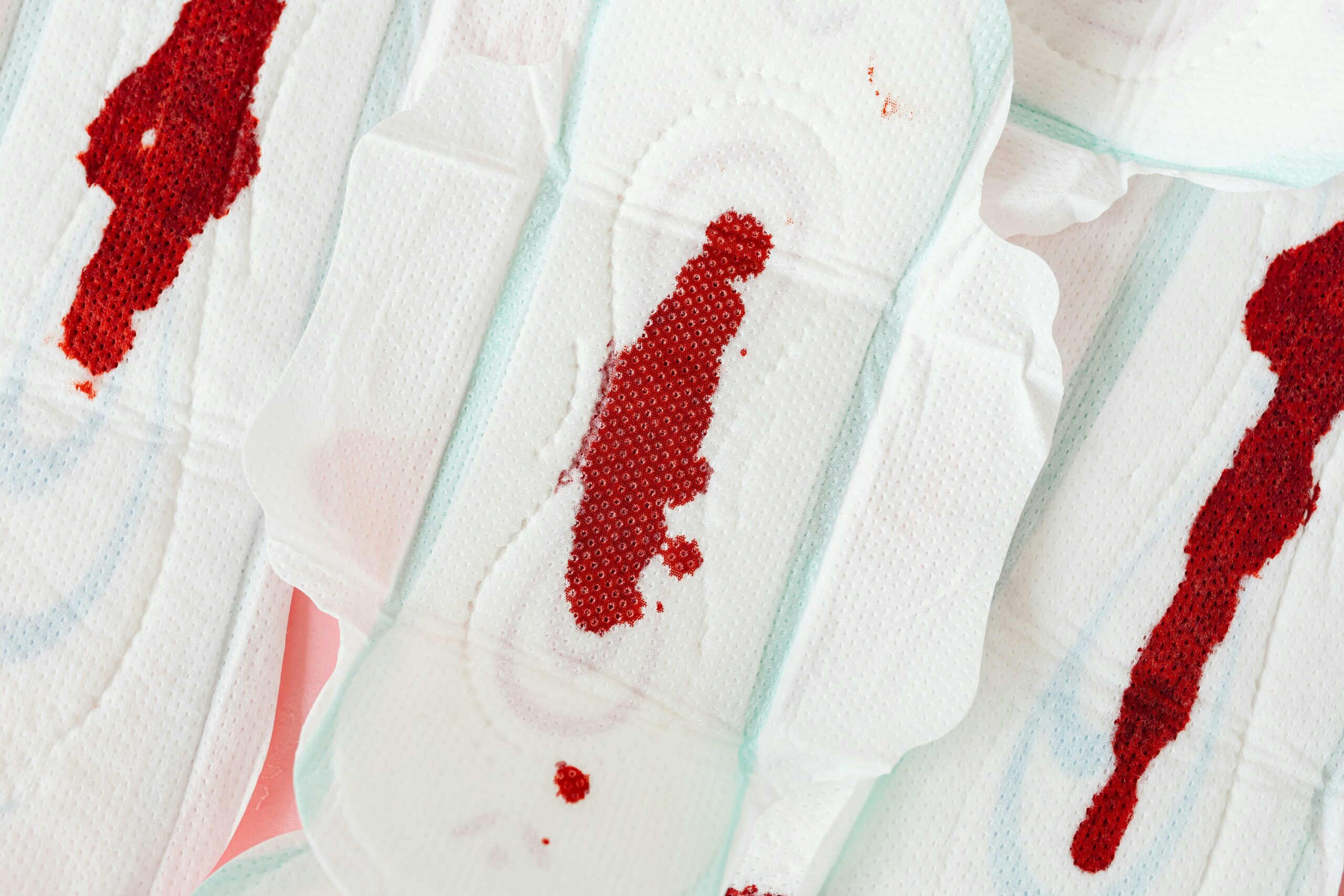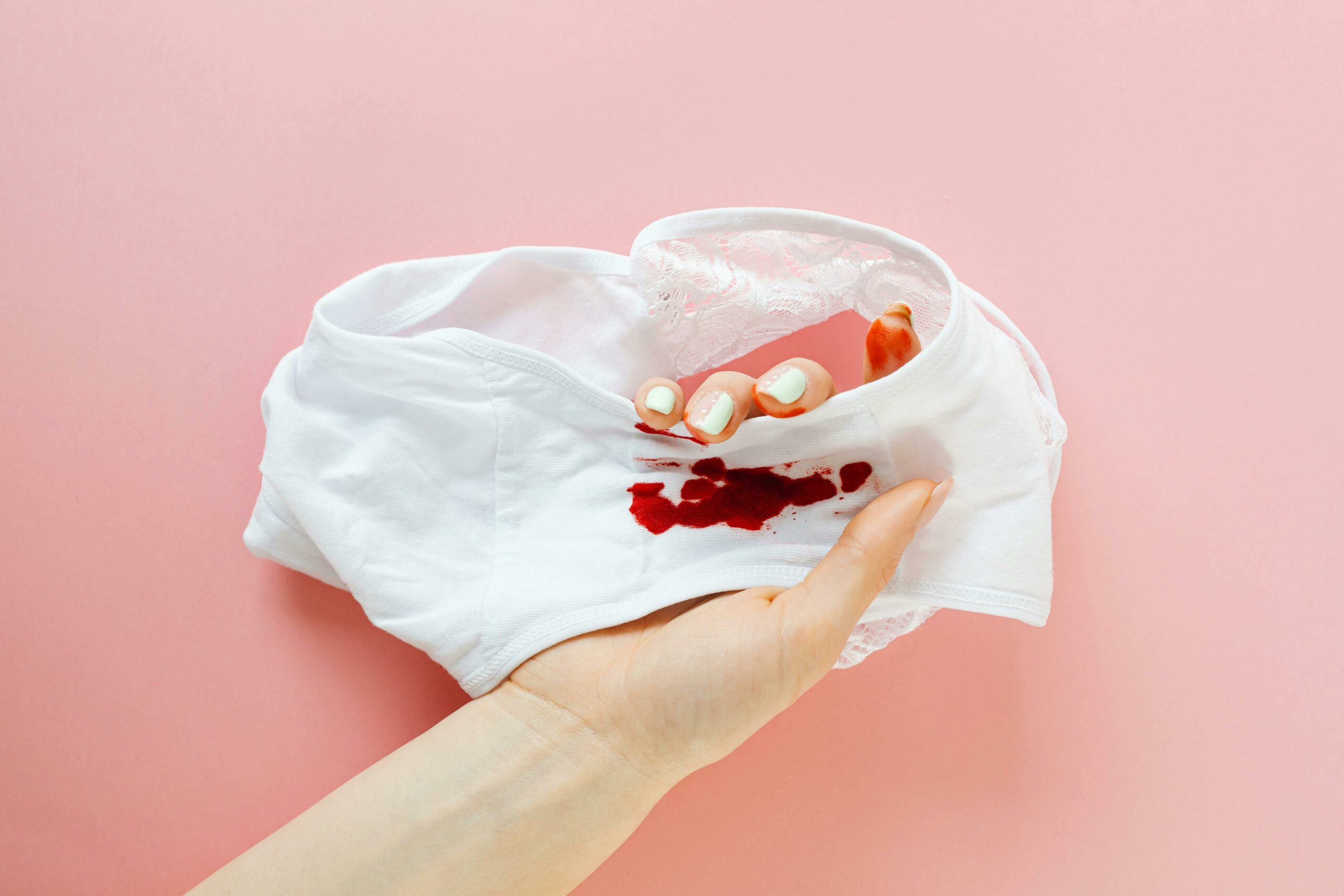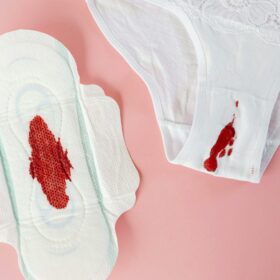
Coping with heavy periods at work
In this article
What's the lowdown?
Heavy periods can affect your working day
Heavy bleeding may cause low iron levels and anaemia making it harder to concentrate
Creating a period first aid kit, upping the iron in your diet and keeping a record of your period symptoms can help you to be prepared for those awful heavy flow days
There are medications which can also really help – tranexamic acid or hormonal treatment can be taken to reduce blood flow
The bleary eyed morning commute is bad already without the arrival of that all too familiar ‘gushing’ feeling and the knowledge that you’re going to have to get through work on your period. Peeling yourself out of your cosy bed and into the slate grey dystopia of the office (or any workplace for that matter!) can be especially uncomfortable if you experience heavy bleeding.
BTW, the signs of heavy periods (which are very common) include:
- Changing your pad or tampon every 1 to 2 hours, or needing to empty your menstrual cup more often than is recommended
- Needing to ‘double up’ on protection i.e. using a pad and a tampon
- Having periods that last beyond 7 days
- Passing blood clots that are larger than a 10p coin
- Bleeding onto clothes or bedding
- Avoiding daily activities such as exercise because of your periods
- Feeling tired or short of breath
Suffering from heavy periods? You’re not alone
Unpleasant, yes, but uncommon – absolutely not. There can be varied statistics but around 9-14 out of every 100 people who menstruate experience heavy periods. If the symptoms are not affecting your quality of life and you are not suffering from anaemia (a low haemoglobin or red blood cell level in your blood), you might not need treatment.
A survey of 2000 cisgender women conducted by Bupa showed that 23% of respondents had taken time off work because of their period within the last 6 months, with a further 36% not feeling comfortable to tell their employer the reason for their absence from work. From the fear of a ruby red stain on the back of your work clothes, to having to explain your symptoms to colleagues who ‘just don’t get it’, it is understandable that heavy periods at work can be super uncomfortable and stressful. In this article we are going to provide some advice and solutions that can help to make working with heavy periods less of a burden.
Tips for dealing with heavy periods at work
There are a few ways to make heavy periods at work more bearable. Some of these are related to behavioural changes and others are medical treatments.
Planning in advance
So, one of the best ways to make a heavy period at work feel more comfortable is by advance preparation.
- Fully stocked on tampons/sanitary towels
- Period first aid kits
- Including iron in your diet
- Period diary
- Stain removal
Make sure you’re fully stocked up on tampons and sanitary towels
Keep a stash of period products in your locker or desk drawer at work, so you never need to worry that you’re going to run out mid-way through the weekly budgeting meeting!
Period first aid kits
So, you’re all covered for tampons, pads or pants, but there are many bits and pieces that can make for a more comfortable set-up during your 9-5. Stock up on painkillers, heat patches (a particular favourite of mine) and chocolate. Don’t forget your Myoovi too, which is designed to stop your period cramps instantly. For a double whammy of pain relief and reducing flow, stick some ibuprofen in your kit. These anti-inflammatory painkillers can reduce blood loss by 25-30%.
Including iron in your diet
If you have heavy periods it is quite common to feel tiredness and low energy due to a lack of iron. This is because of excessive blood loss, and iron is needed to replace the red blood cells. Ensuring that you eat plenty of foods that are rich in iron can help you feel full of energy and in your best state of health during your period. Foods that are rich in iron include dark, leafy vegetables, red meat and nuts. In fact, studies show that extra iron in the diet can reduce PMS symptoms by a whopping 30-40%!
Keeping a period diary
This can be really handy in helping to identify any patterns, changes or anything that might prompt you to have a chat with your GP. If you begin to notice anything new, such as elongated periods or that they’re becoming progressively heavier, it is a good idea to seek some advice.
Also, by tracking your period in this way, you’ll know when the heavier days (hello, day 2) are about to sneak up on you once again, and can plan accordingly. This even extends to planning to only perform particular work tasks for that day – perhaps trying to keep the first couple of days as meeting free, or working from home when you’re bleeding more (if you can).
Period tracking diaries are also useful for figuring out if there are times where your period becomes heavier or more irregular during times of stress.
Stain removal
Keeping stain remover on hand can offer some reassurance. Home remedies like white vinegar, bicarbonate or soda and lemon juice are also said to be effective! Wearing darker or looser clothing for period bloat can limit the awful fear that you’re inadvertently walking round the office with a scarlet splodge on your skirt as well as providing more comfort.
Are you using the right sanitary products for you?
Gone are the days where the only choice was between Tampax and Always. Since these more ‘traditional’ options, the world of period products has exploded with different alternatives to billowing maxi pads (which, if they work for you is great, keep doing what you’re doing). However, if you continue to find stains on your crisp white bed linen, perhaps switching up what you use (depending both on flow and what you feel like cycle-to-cycle) could make life much more comfortable. Think about it, given that we’ll each have around 450 menstrual cycles across our lives, from our teens to our 50s…it does indeed make sense that we’re not going to stick to one product forever. As our lives evolve, those options will too.
There are reports that menstrual cups can be a great option for heavy flows, as they can hold the equivalent of 3 super tampons and are able to be worn for up to 12 hours. The lesser known sibling of cups, menstrual discs, can also hold 3 super tampons worth of blood, with the ability to wear them for up to 6 hours. If you’re able to predict thereabouts when you’ll start your period, you can preemptively pop your menstrual cup or disc in before your flow starts too. So you’ll never encounter that heart-sinking moment where you can’t find one slightly crumpled, ancient tampon in the bottom of your handbag when you realise you’ve come on unexpectedly!
A comfortable combination could also be to invest in a pair of period pants. There are lots of sleek options, even period thongs, which can provide additional peace of mind and can feel smoother on your skin than a pad. Options from Modibodi can hold up to 3-4 tampons worth of blood in the lining, plus they are washable and therefore a sustainable investment. WUKA are another great option.
Ask work to accommodate your needs
It is not okay to feel like you have to struggle through the heaviest days of your period at work. Not only will it make it impossible to concentrate, but this can affect your wellbeing..
If your period is making work difficult for you, it’s a really good idea to have a chat with your manager. Explaining the impact that certain cycle days have on you within the month will help them to consider changes or explore how they can accommodate specific requirements for you. As mentioned above, it may be that you are able to work from home on these days, or can schedule longer breaks between meetings.
The HR team is also on hand for support and advice. This might be a better option if you don’t feel comfortable to speak directly to your manager. It may be that your employer has particular policies in place that can make life easier, plus HR will also definitely be interested in suggestions you may have. Is there a menstrual champion in your office who you can discuss period problems with? Or could you be the company’s first menstrual champion to support others?
Another example could be to suggest to HR that they stock period products in the company toilets. Not only would this be extremely useful but it is part of a wider cultural change in the company – HR will be the ones responsible for implementing and championing any of these sorts of initiatives.
Treatments available for heavy periods
Aside from over-the-counter treatments mentioned above such as Ibuprofen, there are other medications which can help to manage a heavy flow.
Tranexamic acid
Tranexamic acid affects blood clotting and reduces the tendency to bleed. Research tells us it is more effective than NSAIDs, and can really help to improve quality of life by reducing bleeding. People who have consistently heavy periods can take tranexamic acid on a long term basis, but usually you’d take two tablets three times a day for 5 days when your periods are heaviest (it can take around 24 hours to work).
Tranexamic acid is now available to buy over the counter from pharmacies — just ask for Evana Heavy Period Relief tablets. Usually this is two (500mg) tablets taken three to four times a day, for the first three to four days of your period.
Tranexamic acid doesn’t contain any hormones and won’t affect your cycle, so it’s great for people who want to avoid synthetic hormones. It can be used at the same time as all other contraception, and is particularly useful for heavy periods on the copper coil (IUD).
Hormonal contraception
Hormonal contraception could also be a solution to coping with heavy periods at work. We all know that the menstrual cycle is a delicate balance, kept in check by hormones. So, it makes a lot of sense that medications and treatments that affect your hormones may help to reduce bleeding, with added contraceptive benefits.
All forms of hormonal contraception can be used to help periods, in particular, combined methods such as the pill, patch and ring can help regulate periods and lighten flow. Especially when used continuously or back to back. Progestogen-only methods such as the mini pill, injection and implant can also lessen flow and stop periods, and the hormonal coil (IUS) releases a low dose of progestogen; which has a great track record for stopping periods and reducing flow.
Surgical options
If there’s an underlying cause such as fibroids or polyps, removal of these would be effective in reducing blood loss.
When to speak to a healthcare professional
As a rule of thumb, if your periods are so heavy that they are preventing you from carrying out your daily activities, this should be explored with your healthcare provider. It might be that there is no underlying health issue, but it is definitely worth having a chat to rule out health conditions such as endometriosis, pelvic inflammatory disease and polycystic ovary syndrome (PCOS). If you experience any changes to your menstrual cycle, such as a sudden increase in flow, it is also recommended that you seek medical advice.
If you’re having trouble coping with heavy periods at work, and would like quick and friendly medical advice, book an appointment with one of The Lowdown’s GPs to discuss management options, and potential contraception methods that could work for you. Or alternatively, you can use our contraception recommender to find the best contraception method for you.
Our medical review process
This article has been medically reviewed for factual and up to date information by a Lowdown doctor.






